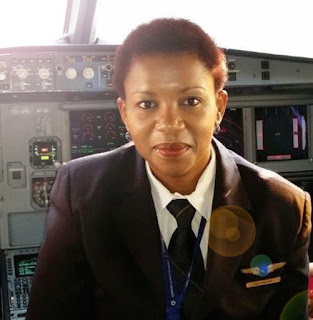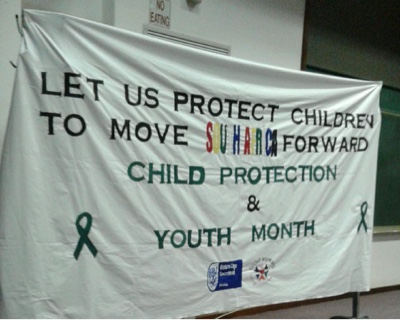We need more women in top leadership positions in companies and at schools.
 |
| Asnath Mahapa, first black woman in South Africa to become a pilot. She also runs her own aviation academy in Gauteng. |
Cape Winelands Education District hosted a Leadership Conference for Deputy Principals on Saturday. I chose to focus on the role female leaders can play to eradicate the gender prejudice with its manifestations of gross violence, injustice and abuse against women.
Here is a snapshot of my talk that was entitled: Women in Leadership: It is time to bring gender balance in the top leadership structures in organizations.
My argument was premised on the following three key points:
1. We need women with positional power and influence in organizations to advance the human rights of women.
In this past week, we had two young women violently raped and brutally murdered. The one victim, Fransziska Blochliger, went for a jog in Tokai forest and within hours, she was a badly-battered corpse. The other victim, Sinoxolo Mafevuka, of Khayelitsha, was found dead, half naked, slumped over the toilet bowl with her body protruding to the door and her clothes stuffed in the cistern. Sinoxolo probably went to the communal toilet to relieve herself when her life was violently snuffed out.
In Paarl, a mother took her 4 year old child who was raped, to the hospital. She was turned away and told to come back the next day. I suppose the mother had to suspend her and her baby's trauma and then travelled home by foot or by taxi after being ignored by the hospital.
According to certain reports, a woman is raped every three minutes. During my 45 minute talk, I highlighted that according to this statistic, 15 women would have been raped as we sat there in the comfort of a lecture room. If we use the statistic of women's groups, who claim that about 100 hundred women are raped every hour, the horror is indescribable.
There are millions of women who are physically, emotionally and economically abused in South Africa and internationally. We need women who have the political power and the voice to fight for the vulnerable and the marginalized women. Women know what women need and will therefore be able to participate in making decisions that affect women's health, well-being, employment and other aspects of women's lives.
Statistics show male-dominance in top leadership structures in industry and education.
There is a startling absence of women's voice at the decision-making levels at schools and in other organizations.
We need woman CEOs, directors and school principals who can help to change the misogynic attitudes, make women's rights a priority and fight to build a values-based human rights culture for everybody.
2. We need a new leadership model to advance the human rights of women as a marginalized group.
We are now in the creative economy that requires fourth generation leadership. Leaders can no longer only depend on their basket of knowledge and skills to focus solely on productivity. Human lives matter and organizations exist because of the human beings who form them.
Leaders need to possess high interpersonal skills, be creative problem-solvers and be exceptional, experienced team players in addition to being functionally competent for the leadership position they occupy.
If we accept the notion that most men are left-brained and that the traditional leadership of command and control variations are the norm, then we can understand the limitations of the current male-dominated leadership to build a human rights culture at organizations, including schools. Women, who are regarded as being right-brained dominant, will bring balance at the top leadership structure.
Women, with their natural tendency to be intuitive, relationship builders and natural team players, will build the capacity of the executive team. The other challenge, of course, is that the few women who reach the top, assimilate the leadership behaviour of the men. If there are however, more women at the various leadership layers and more women at the senior levels, women will have greater support and better networking opportunities.
3. Women need to be part of the decision-making top leadership structures.
Leaders who have the power to make decisions, shape the strategic direction of the organization and shape the culture of the organization. If women do not have this positional power to influence these areas, their impact will be limited. Women need to get into the boardroom, whether it is in a private organization or a public institution like schools, if we are serious about transforming our organizations into spaces where human rights takes centre stage.
We need this gender balance in our schools, our work places and all spaces where we communicate and live with one another. We need gender parity to help us build values-based organizations where our children, mothers, fathers, family and community members learn how to care and respect one another.
If we are serious about ensuring that everybody enjoys human rights equally, we will transform our power structures, change our organizational cultures and exercise our political will.
The theme of International Women's Day is: Planet 50-50. Step it up for gender equality. We missed the Millennium development goal in 2015. Let us commit to the Sustainable development goal of 2030 for gender parity.
What are your views?



I am extremely delighted in for this web journal. Its a useful subject. It help me all that much to take care of a few issues. Its chance are so awesome and working style so rapid. jenny b
ReplyDelete